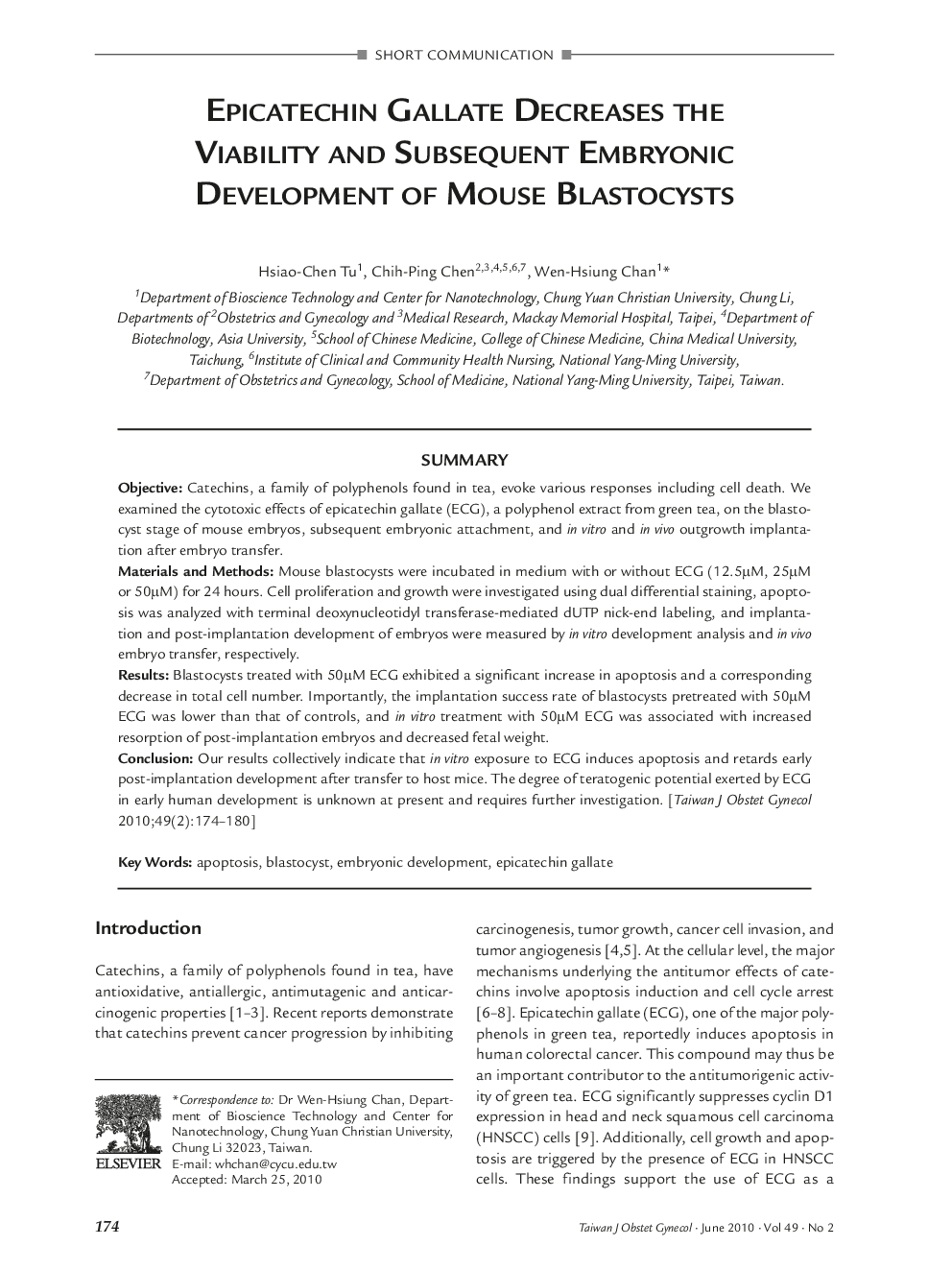| Article ID | Journal | Published Year | Pages | File Type |
|---|---|---|---|---|
| 3975846 | Taiwanese Journal of Obstetrics and Gynecology | 2010 | 7 Pages |
SummaryObjectiveCatechins, a family of polyphenols found in tea, evoke various responses including cell death. We examined the cytotoxic effects of epicatechin gallate (ECG), a polyphenol extract from green tea, on the blastocyst stage of mouse embryos, subsequent embryonic attachment, and in vitro and in vivo outgrowth implantation after embryo transfer.Materials and MethodsMouse blastocysts were incubated in medium with or without ECG (12.5μM, 25μM or 50μM) for 24 hours. Cell proliferation and growth were investigated using dual differential staining, apoptosis was analyzed with terminal deoxynucleotidyl transferase-mediated dUTP nick-end labeling, and implantation and post-implantation development of embryos were measured by in vitro development analysis and in vivo embryo transfer, respectively.ResultsBlastocysts treated with 50μM ECG exhibited a significant increase in apoptosis and a corresponding decrease in total cell number. Importantly, the implantation success rate of blastocysts pretreated with 50μM ECG was lower than that of controls, and in vitro treatment with 50μM ECG was associated with increased resorption of post-implantation embryos and decreased fetal weight.ConclusionOur results collectively indicate that in vitro exposure to ECG induces apoptosis and retards early post-implantation development after transfer to host mice. The degree of teratogenic potential exerted by ECG in early human development is unknown at present and requires further investigation.
